53 F. high in the Twin Cities Wednesday.
63 F. average high on April 27.
69 F. high on April 27, 2015.
.27" of rain had fallen at KMSP as of 7 PM yesterday.
Proving it could be worse...
April 28, 1994: Heavy snow falls over parts of Minnesota with 7.5 inches at Tower and 4.5 inches in the Twin Cities.
April 28, 1966: A heavy snowstorm leaves 10 inches of snow on the ground across a wide chunk of northern Minnesota.
Forever Laughing in a Purple Rain“I
only wanted to see you laughing in the purple rain.” Prince Rogers
Nelson was a Minnesota Original; self-made, possessing infinite range
and supernatural style. He was a musical savant; a funked-up Jimi
Hendrix with the poetic spark of Maya Angelou.
I admired his
entrepreneurial genius. Prince went against the flow; he zigged when
others zagged, reinventing his music, even his business model. He
commandeered a color and changed his name to a symbol.
Who does that?
I’m
ignoring the inevitable media-hype, rumors and gossip, focusing not on
how he died – but how he lived. Purple on Doppler radar denotes
something extreme. Off-the-scale. That seems about right.
Purple puddles shrink later today as rain tapers; sunny peeks
Friday, before the next southern storm pushes a pinwheel of rain into southern Minnesota
Saturday.
Sunday
looks better (drier and brighter) with a warming trend the latter half
of next week. The first weekend of May could bring hazy sun and 80
degrees.
I may even feel a supernatural urge to purify myself in the cool waters of Lake Minnetonka.
Thank you Prince.
Heaviest Rains South of MSP Metro.
4 KM NAM guidance from NOAA shows the best chance of 1"+ rains from
Redwood Falls and Mankato into the southern suburbs of the Twin Cities
this morning - rain should be tapering off this afternoon. 60-hour
accumulated rainfall: AerisWeather.
Raw Thursday - Spring Returns Next Week.
Temperatures may not climb out of the 40s today with a stiff breeze,
but the sun angle is too high for chilly/jacket weather to linger for
long. European guidance shows a warming trend next week; maybe 70s
toward the end of next week. Source: WeatherSpark.
Warm Ridge Builds by Mid-May?
GFS guidance continues to hint at a closed low over the Great Lakes or
New England as we sail into May, a trend toward building a warm bubble
of high pressure across the Plains into Minnesota with 70s close to home
the second week of May. No late-season snowy surprises showing up just
yet.
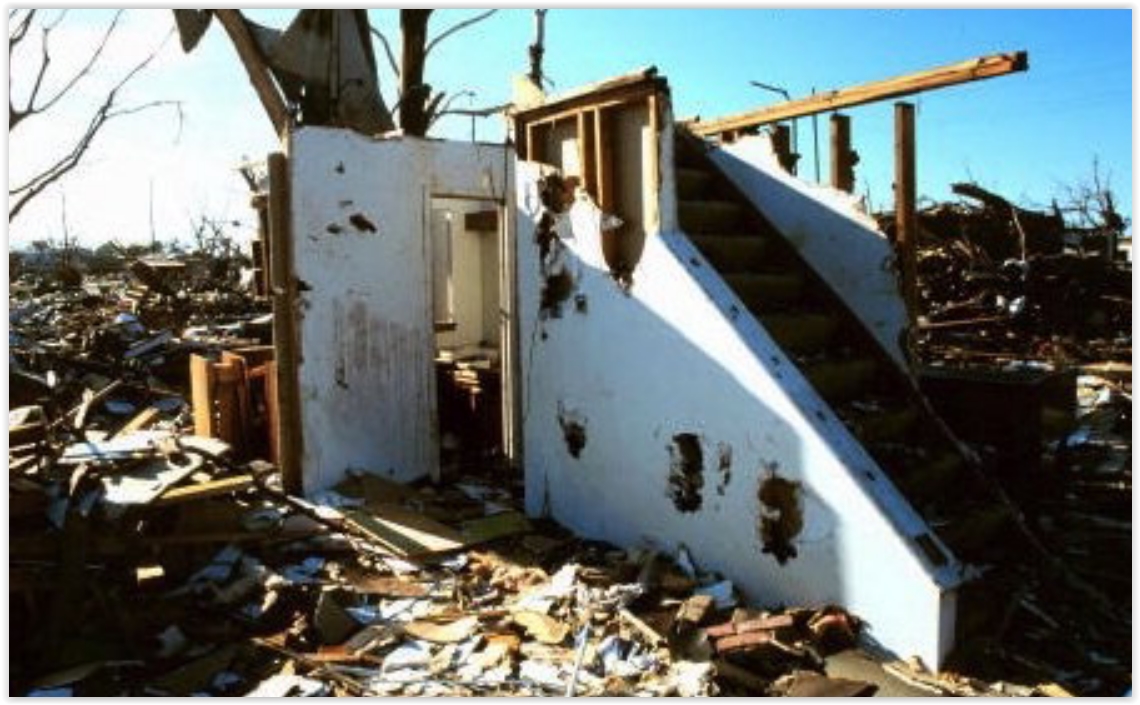 The Worst-Case Scenario: How To Ride Out a Tornado
The Worst-Case Scenario: How To Ride Out a Tornado. Here's an excerpt of a good, timely post at
al.com: "...
The
best place to ride out a tornado is in a storm shelter, or the smallest
room in the center of the building you'€™re in on the lowest floor,
such as a closet or bathroom, interior hall or under a stairwell. Get
away from windows. Get under something that can protect you from flying
debris, which is the greatest danger in tornadoes, according to NOAA'€™s
Storm Prediction Center.
Cover yourself with a mattress or sleeping bag. Know where the heavy
things are on the floors above you and don't get under them. Get as low
to the floor as you can and cover your head with your hands..."
Photo credit above: "
One
of the safest places to ride out a tornado in your home is under on the
lowest floor, in an interior room, away from windows. This stairwell
was just about the only thing left standing after a tornado." (NSSL photo).
A Tornado's Heading Your Way. Now What? An article at
WMUR has some good reminders; here's an excerpt: "...
Remember,
the biggest threat is getting hit by flying debris, not getting sucked
into the tornado. So protect your head and neck. Here's what you should
do, courtesy of the Department of Homeland Security:
• If
you're near a well-built structure (no mobile homes or temporary
buildings), check if it has a safe room and use that. If there's no safe
room, go to the basement. If there's no basement, go to a room in the
centermost part of the building on the ground floor. You're looking for
something that puts as many walls in between you and the storm and has
no windows. Try to hide under something sturdy (a hard desk) and protect
your head and neck. Be aware of what's above you if you're in a
multi-story building (like a refrigerator that could fall on you)..."
Stormbox: Above-Ground Tornado Shelters.
Granted, you may not want a massively-reinforced shipping container
sitting in your back yard, but if an EF-5 tornado is approaching this is
where I would want to be if I didn't have access to an underground
shelter.
More details: "
Every
STORMBOX starts with a refabricated mobile storage unit, reinforced
with materials robust enough to withstand the worst Mother Nature can
devise, and engineered for accessibility and reliability. Unlike
previous generations of storm shelters, STORMBOX is designed to sit
above the ground, allowing fast and easy access, including wheelchair
accessibility, through the reinforced door. The aboveground design also
helps prevent flooding and debris blockage caused by weather events. The
fabrication process for every STORMBOX ensures that each product is
always reliable, built using green construction practices, and less
expensive than traditional underground storm shelters. With models
available to accommodate up to 80 people, STORMBOX is the reliable
solution for families, neighborhoods, schools and businesses..."
* Vilonia, Arkansas - hit by an EF-5 tornado in 2014, just installed one of these near their city hall, as reported by
KATV.com.
Was Tuesday's Severe Weather Forecast a Bust?
Short answer: yes. The ingredients were present, but the tornado count
was low. Here's an excerpt of a post from Dr. Marshall Shepherd at
Forbes: "...
A week ago we were talking about the possibility of severe weather and tornadoes.
Tuesday (April 26th) was supposed to be the “day.” Adequate warnings
were up. The National Weather Service even issued a rare “Potentially
Dangerous Situation (PDS)” Tornado Watch, which is only used about 3% of
the time according to the Weather Channel (more on this later). As the
event played out (and afterwards), I couldn’t help but notice on social
media that the word “bust” was starting to appear in the narrative of
some colleagues and enthusiasts. I ask the question this morning, “Was
Yesterday’s Severe Weather Forecast A Bust?...”
Storm Chasers Look Back on Deadly (Tuscaloosa) Tornado. A monstrous EF-4 struck Tuscaloosa 5 years ago today; here's an excerpt of a perspective from local storm chasers at
al.com: "...
Five
years later, Chandler would do it again. Not for the adrenaline,
although he felt it. Ill-advised as it was, the chase changed his life.
And not because the "F5 Tuscaloosa tornado"
video Hughett filmed and Chandler posted went viral, currently boasting
3.4 million views on YouTube. The chase gave Chandler a new purpose in
life, not as a budding storm-chaser, but as public servant. The
Tuscaloosa native now works as a firefighter in Tennessee, a career he'd
soon pursue in the immediate aftermath of what happened in the
afternoon of April 27, 2011. Now a historic document, the video marks a
crucial moment the city's history, chronicling 13 of the most dire and
challenging minutes in one of Tuscaloosa's darkest and subsequently
proudest hours..."
* The raw tornado chaser video is
here (rated PG for salty language). No wonder it has 3.5 million views on YouTube - it's amazing.
A Tornado's Heading Your Way. Now What?
Are there ever circumstances where trying to drive away from a tornado
makes sense? It's a tough question, but if it's an EF-4 or EF-5 and you
don't have a basement, the tornado may not be survivable. Here's an
excerpt from
CNN: "...
My
advice would be to seek the safest place available. That is: lie in a
ditch or ... (get) behind a heavy object if you had a tractor or even a
tree." He cited the 1979 Wichita Falls, Texas, tornado as a cautionary
lesson. That twister killed 54 people and, Kiesling noted, "many people
were killed in automobiles because they tried to outrun it." Still,
Kiesling allowed, there may be times when fleeing an impending tornado
might be a good option. "If you have good information on the storm, if
you have plenty of warning, if you have an automobile, it may make
sense, but I personally don't feel that's the advice that we want to
give the public..."
Tornado Warnings Get Minds Spinning.
Can longer warnings (up to an hour) trigger behavior more likely to get
people injured and killed? Quite possibly. Here's an excerpt from
The Denver Post: "...
For
all of their advances in the physical sciences, forecasters have yet to
determine when advance warnings are most effective and how urgent their
messages should be. They worry about the "cry wolf" syndrome, in which
people may tune them out, and about people overreacting, especially with
tornadoes. People have left much safer buildings and headed into their
cars to flee, but cars are the last place you want to be in a tornado.
And it's not just tornadoes. Forecasters are still trying to understand
why several people in Houston ignored the mantra "Turn around, don't
drown" and died after driving onto flooded streets last week..."
1 Minute Visible Updates.
Talk about hypnotic - here is a loop from NOAA's new GOES-14 (GOES-R)
satellite, where images are snapped once every 60 seconds, creating a
smooth, fluid satellite loop that captures features unseen until now.
This animation was recorded around 5 PM Tuesday as tornadic T-storms
were firing up along a dry line in western Texas and Oklahoma. Credit:
RAMMB, Colorado State.
It May Soon Be Too Late To Save The Seas. Jeff Nesbit has the story at
U.S. News; here's the intro: "
What
happens if marine life in the oceans can't pull in enough oxygen from
the oceans to live? We may be about to find out. A startling new study
led by the National Center for Atmospheric Research (the federal
research arm of the National Science Foundation) published Wednesday
found a disturbing trend – a warming planet could overwhelm natural
variability and start to significantly affect oxygen levels in the
oceans in just 10-15 years. The study confirmed what scientists have
long observed - that climate change is causing a drop in the amount of
oxygen dissolved in oceans in some parts of the world. But the study's
central conclusion is what is so alarming - the effects of this drop in
the amount of oxygen all marine life require will start to become
evident in just 15 years or so. At some point, the drop in the ocean's
oxygen levels will leave marine life struggling to breathe..." (File image: Alamy).
San Diego Republican Mayor Pushes Plan to Run on 100% Renewable Energy. Here's an excerpt from
The Guardian: "...
But
San Diego’s bipartisan push to embrace clean energy such as solar and
wind, while radically paring back greenhouse gas emissions by 80% by
2050, is a glimpse into how the rancorous brawls over climate change
could have been avoided across the rest of the US. “This isn’t a
partisan issue,” Faulconer told the Guardian. “I’ve said from the very
beginning there’s enough partisan politics at the national level. I was a
volunteer for our parks before becoming mayor; I love our natural
resources, our beaches and landscapes. I feel strongly about protecting
them...”
Photo credit above: "
San Diego is among a large group of cities impatient with federal government bickering over climate change." Photograph: Gregory Bull/AP.
The Story Behind Prince's Low-Profile Generosity to Green Causes. I had no idea. Here's an excerpt from
Grist: "
In
the outpouring of media coverage after Prince’s death at the age of 57
last week, fans around the globe began to learn more about the
notoriously private star — including that he gave away a lot of money.
Van Jones — the activist, author, former Obama administration official,
and current CNN commentator — revealed
that Prince had secretly funded causes from public radio to Black Lives
Matter to the Harlem Children’s Zone. He also conceived of #YesWeCode, an initiative to train black kids for work in tech. And he supported Green For All,
a group working to fight climate change and bring green jobs to
underprivileged populations. Jones is in the leadership of the latter
two organizations..."
Image credit: Olivia Harris, Reuters.
In Minnesota, Waste to Energy Debate Firing Up Once Again. Here's the intro to a story at
Midwest Energy News: "
Three
prominent Minnesota environmental and community action organizations
recently announced they are joining forces in an effort to close a solid
waste incinerator on the edge of downtown Minneapolis. The Sierra
Club’s statewide chapter, Neighborhoods Organizing for Change and
Minnesota Public Interest Research Group met in April
to create a collective campaign to close the Hennepin Energy Recovery
Center, better known as HERC. The groups’ concerns — primarily about
local impacts from pollution — put them at odds with Minnesota state
policy, which places a higher value on waste-to-energy production over
landfills..."
Photo credit: "
The Hennepin Energy Recovery Center near downtown Minneapolis."
The U.S. Has Enough PV To Cover One Lane of its Interstate Highway System.
Greentech Media has an intriguing article; here's an excerpt: "
Two years ago, YouTube phenomenon "Solar Freakin’ Roadways" garnered 21 million views as part of an Indiegogo campaign, leading 50,000 backers to pledge a total of more than $2 million to help a burgeoning startup to develop road-integrated photovoltaics. Despite skepticism from many experts, parent
company Solar Roadways has persevered, winning a two-year, $750,000
contract from the U.S. Department of Transportation last November
to pursue its vision. But what if the solar industry is already
realizing Solar Roadways’ dream, without the added engineering
challenges and costs of designing load-bearing structures which meet
regulatory requirements?..."
How Business Can Thrive in the Digital Age.
Waves of disruption are arriving with greater frequency and intensity.
Is a "sustainable business model" an oxymoron? Continuous
experimentation and reinvention is required, an ability to stay lean and
move even faster. Here's an excerpt of a relevent article at
Fortune: "...
In
this context, business leaders are no longer asking: “Am I going to be
disrupted?” Increasingly, the core strategic questions for Fortune 500 companies
have become: “In what ways am I already being disrupted? What does this
mean for society at large? And what new assets, skills and sources of
information do I need to develop in order to respond?” Executives need
to look carefully into the changes that are just starting to emerge and
learn as much as they can about how new technologies affect their core
value proposition, their competitive positioning, and their
relationships with stakeholders..."
A Majority of Millenials Now Reject Capitalism, Poll Shows. My first reaction was, huh? Where are we living - Sweden? Be careful what you wish for. Here's a clip from
The Washington Post: "
In
an apparent rejection of the basic principles of the U.S. economy, a
new poll shows that most young people do not support capitalism. The
Harvard University survey, which polled young adults between ages 18 and
29, found that 51 percent of respondents do not support capitalism.
Just 42 percent said they support it. It isn't clear that the young
people in the poll would prefer some alternative system, though. Just 33
percent said they supported socialism. The survey had a margin of error
of 2.4 percentage points..."
Image credit above:
Amy Cavenaile/The Washington Post; iStock; Emojipedia.
Daschle and Klain: "We're Not Ready For The Next Zika Virus". Here's an excerpt of an Op-Ed at
USA TODAY: "...
Combating
biological threats — either naturally occurring like Ebola or Zika, or
deliberate, like anthrax or smallpox — requires a coordinated response.
We urge the next administration to start planning for biosecurity risks
from day one, and to replace the current “governing by crisis” response
cycle with a more permanent and resilient approach. We need to build on
previous investments in the area, not reinvent the wheel each time a
crisis demands a response. Numerous commissions and panels have
concluded that biological threats have the potential for catastrophic
consequences within the United States, and have provided recommendations
for a path forward. But will policymakers finally act?..."
Photo credit above: "
Susan
Belzer, vice president of Diagnostics at MD Biosciences, held a vile
containing a sample of the Zika virus like the one used by scientists at
the firm to develop a test for the virus. The Zika virus samples are
stored at -80 Centigrade." Jim Gehrz, Star Tribune.
Forget Too Much TV. It's Too Big TV We Should Worry About.
Wave goodbye to the traditional 30 and 60 minute TV "show". Streaming
TV changes everything, including expectations. Here's a clip at The New York Times: "...Today’s great fattening, like so many trends in TV now, is in part the influence of streaming TV.
The only thing limiting the length of a Netflix or Amazon binge show is
your ability to sit without cramping. The menu is bigger, and so are
the portions. Meanwhile, basic cable channels realized that there was no
reason their “hourlong” series needed to end on the hour. If they
pushed a 10 p.m. drama’s end to, say, 11:17, they could give their
creators the kind of narrative real estate available on ad-free HBO and
Showtime..."
The Future of TV Is Happening Faster Than Anyone Thought. Every industry gets disrupted - just about the only thing that is predictable is disruption.
The Washington Post reports.
The King of Frequent Flier Miles? Quora has an interesting post - not feeling nearly as good about my 900K with Delta: "
I'm
going to have to go with Fred Finn, with 15 million miles, to include
718 Concorde flights—logging three crossings in a day once. Being a
British citizen, he's evidently garnered more miles with British Airways
than any other, but I can't find all of the airlines—139 countries is a
lot and must mean lots of other airlines—nor if BA has a majority of
the impressive total."
TODAY: Rain slowly tapers, raw. Winds: NE 10-15. High: 46
THURSDAY NIGHT: Thinning clouds, cool breeze. Low: 38
FRIDAY: Glimmers of sun, almost pleasant. Winds: NE 7-12. High: 59
SATURDAY: Early sun, PM rain southern Minnesota. Winds: NE 10-20. Wake-up: 43. High: 58
SUNDAY: Damp start, then slow clearing. Winds: NE 10-15. Wake-up: 45. High: near 60
MONDAY: Partly sunny, feels like spring again. Winds: NW 7-12. Wake-up: 39. High: 65
TUESDAY: Unsettled and cooler. Few showers. Winds: N 10-15. Wake-up: 46. High: 57
WEDNESDAY: More clouds than sun, stray sprinkle. Winds: N 10-15. Wake-up: 41. High: 59
Climate Stories...
Why States and Cities Must Lead The Way on Climate Change. Here's an excerpt of an Op-Ed at
The Wall Street Journal: "...
The
truth is that despite the large-scale, global impact of climate change,
it is the states and cities, not Washington D.C., that have most of the
legal powers to prevent global warming by helping the United States
transition to cleaner energy. States create energy building codes;
localities enforce them. Cities establish the zoning that governs
sprawl. They make mobility investments that can simultaneously save
adults from traffic jams and children from asthma. State commissions
regulate investor-owned electric utilities and the policies that either
reward or punish customers who want to produce their own power..."
Image credit above: "
The
truth is that despite the large-scale, global impact of climate change,
it is the states and cities, not Washington D.C., that have most of the
legal powers to prevent global warming," says WSJ Energy Expert Bill
Ritter." Photo: iStock Photo.
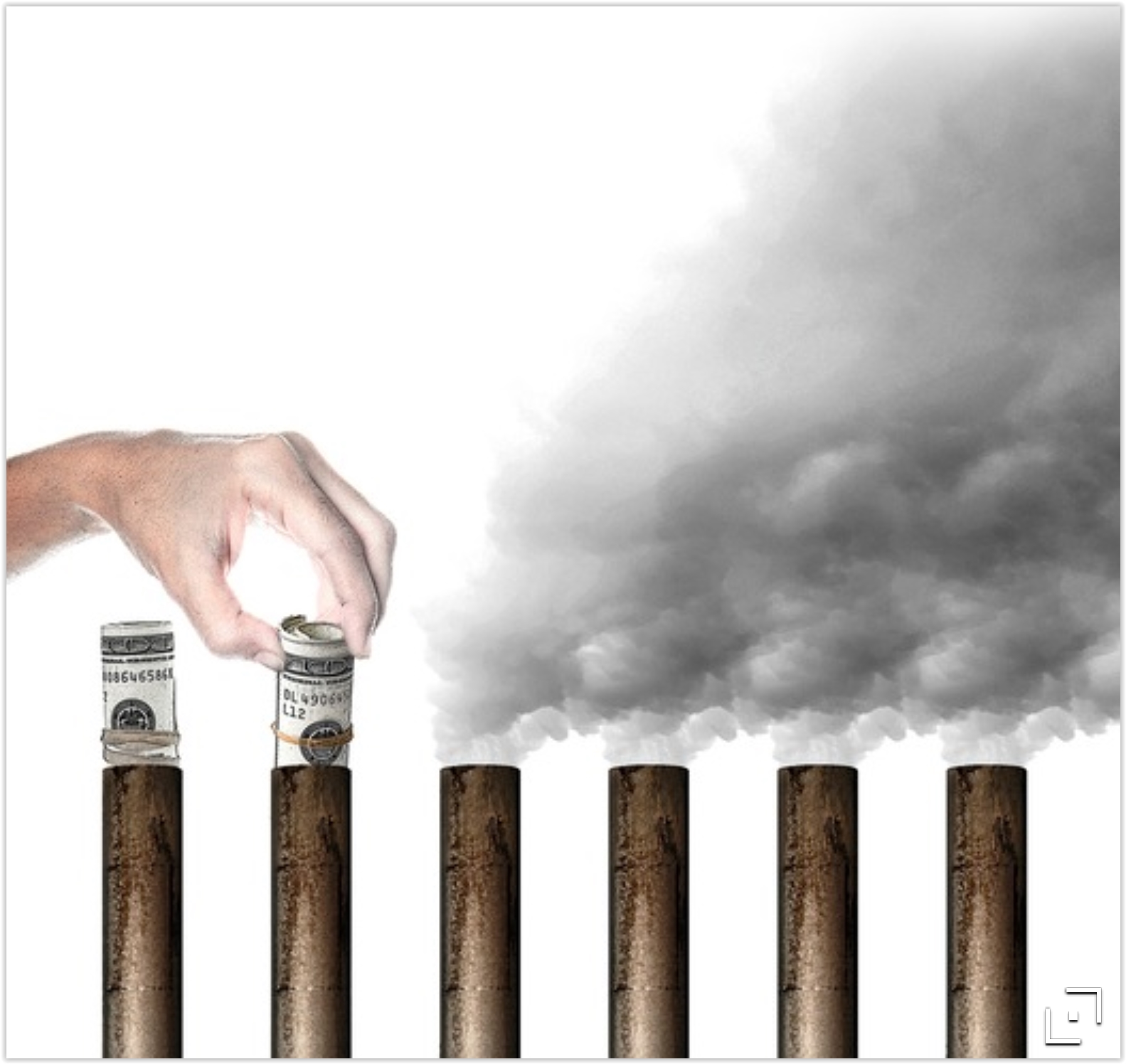 The Political Hurdles Facing a Carbon Tax - And How To Overcome Them. How do you adequately factor (real) costs into the equation? Dave Roberts has an interesting post at Vox; here's a clip: "...The
point is, carbon prices, where they exist, are too low. Why? The
obvious answer is that carbon pricing faces various political
constraints, which prevent the carbon price from rising to the proper
(high) level. Unfortunately, these political constraints are not nearly as well-understood
as the economic dynamics of carbon pricing. Among climate economists
and wonks, the hunches, pet theories, and ritual invocations of
"political will" too often are substitutes for deeper, systemic
political analysis. The Jenkins-Karplus paper is an attempt to make some
progress on that score. It sets out to model carbon pricing scenarios,
seeking to determine which policy design leads to the greatest aggregate
social welfare under various political constraints
The Political Hurdles Facing a Carbon Tax - And How To Overcome Them. How do you adequately factor (real) costs into the equation? Dave Roberts has an interesting post at Vox; here's a clip: "...The
point is, carbon prices, where they exist, are too low. Why? The
obvious answer is that carbon pricing faces various political
constraints, which prevent the carbon price from rising to the proper
(high) level. Unfortunately, these political constraints are not nearly as well-understood
as the economic dynamics of carbon pricing. Among climate economists
and wonks, the hunches, pet theories, and ritual invocations of
"political will" too often are substitutes for deeper, systemic
political analysis. The Jenkins-Karplus paper is an attempt to make some
progress on that score. It sets out to model carbon pricing scenarios,
seeking to determine which policy design leads to the greatest aggregate
social welfare under various political constraints..." (Image credit: Star Tribune).
Big Oil Ads Beat Out Climate News on CNN. But those ads pay the bills, another inconvenient truth. When in doubt, follow the money. Here's an excerpt at
Huffington Post: "
Fossil
fuel ads are drowning out news reports about climate change on CNN.
During one week in January, just after NASA announced that 2015 was the
hottest year on record, CNN viewers saw over 10 times more advertising
from the oil and gas industry than reporting about the world’s climate,
according to a new study from
the nonprofit Media Matters. While the cable news network devoted less
than a minute to stories about the warming planet that week, it sold
over 13 minutes of air time to the American Petroleum Institute, the
country’s largest oil and gas trade group..."
"There Is No Doubt". Exxon Knew CO2 Pollution Was A Global Threat by late 1970s. Here's a snippet of a post at
DeSmogBlog: "
Throughout Exxon’s global operations, the company knew that CO2
was a harmful pollutant in the atmosphere years earlier than previously
reported. DeSmog has uncovered Exxon corporate documents from the late
1970s stating unequivocally “there is no doubt” that CO2 from the burning of fossil fuels was a growing “problem” well understood within the company.
“It is assumed that the major contributors of CO2 are the burning of fossil fuels… There is no doubt that increases in fossil fuel usage and decreases of forest cover are aggravating the potential problem of increased CO2 in the atmosphere. Technology exists to remove CO2 from stack gases but removal of only 50% of the CO2 would double the cost of power generation.” [emphasis added]
Those
lines appeared in a 1980 report, “Review of Environmental Protection
Activities for 1978-1979,” produced by Imperial Oil, Exxon’s
Canadian subsidiary..."
Global Warming: Are Worst Doubts About Future of Climate Change Coming True? Here's a clip from a summary at
Firstpost: "...
Irrespective
of the political debates, the market, including the investment climate,
is reacting in favour of de-carbonization like never before. As they
say, every boxer has plans and strategies until they get punched in the
mouth. Then starts the real fight. The shocking punches are already
evident on the face of energy market. In the last two years, the global
economy has grown by about six percent, but energy and transport-related
carbon dioxide emissions have not grown at all as per the findings of
the International Energy Agency (IEA). The US, the EU and even China
have all shown that CO2 emissions have been falling. Such decoupling has
happened, surprisingly, in the face of a steep fall in oil prices by
nearly 75 percent in two years. Clean energy investment, including in
renewable energy, broke new records in 2015 and is now seeing twice as
much global funding as fossil fuels..."
Polarization May Cause Climate Communication to Backfire. Here's an excerpt of an interesting post at
Nicholas School of the Environment at Duke: "
Political
advocates who support action on climate change have long sought "the
perfect message" for swaying skeptics. If the issue can be framed
correctly, they believe, the battle can be won. A new Duke University
study suggests it may be more complicated than that. "Because climate
change has become polarized along party lines, it's no longer just an
issue of finding "the right framing to convey relevant facts," said
study author Jack Zhou, who will graduate with a Ph.D. in environmental
politics next month from Duke's Nicholas School of the Environment. "Iit
has become a matter of political identity, particularly the political
party we feel closest to..."
Political
advocates who support action on climate change have long sought “the
perfect message” for swaying skeptics. If the issue can be framed
correctly, they believe, the battle can be won.
A new Duke University study suggests it may be more complicated than that.
“Because
climate change has become polarized along party lines, it’s no longer
just an issue of finding ‘the right framing’ to convey relevant facts,”
said study author Jack Zhou, who will graduate with a Ph.D. in
environmental politics next month from Duke’s Nicholas School of the
Environment. “It has become a matter of political identity, particularly
the political party we feel closest to.”
- See more at: https://nicholas.duke.edu/about/news/Polarization-Climate-Communication-Backfire#sthash.zISJNYwk.dpuf
This Worst-Case Scenario Sea-Level Rise Study Will Give Miami Nightmares. Here's the intro to a story at
Miami New Times: "
Picture
this: In less than a century, ice in Greenland and Antarctica has
melted far more rapidly than even the most dire predictions have
forecast. The seas worldwide have risen by meters, swamping coastal
cities like Miami. Even worse, the rapid melt has led Atlantic currents
such as the Gulf Stream to collapse, creating new, unstable temperature
systems that spark megahurricanes across the tropics. That's roughly the
scenario in a paper recently unveiled by James Hansen, a former NASA
scientist and current climate-change Cassandra. The 52-page work,
available online at Atmospheric Chemistry and Physics, makes perfect nightmare fuel for Miamians..."
Photo credit above: "
Massive
superstorms and dozens of feet of sea water by the end of this century
are the doomsday predictions of a former NASA scientist."
Photo by Carvalho via Flickr CC
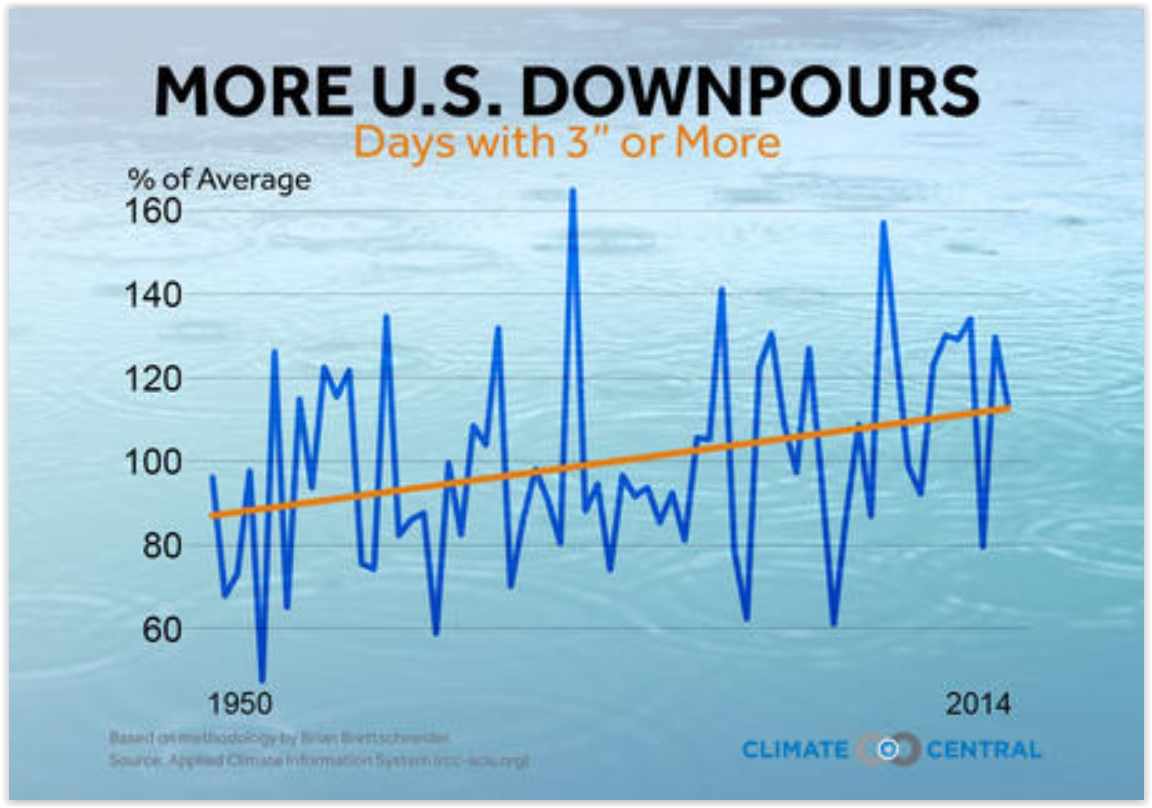 The Global Warming "Tease".
The Global Warming "Tease". Still
think it's all a hoax to "grow government" or "take away our personal
liberties"? The evidence is there - and it's only going to become more
obvious with time. It's good to be skeptical (about everything) but at
some point you reach a critical mass of evidence. A friend of mine,
Glenn Schwartz, is chief meteorologist at the NBC affiliate in
Philadelphia. Here's an excerpt of a
recent post: "...
So,
the obvious result is a contradiction between what many scientists and
politicians have been saying. It’s hard to be concerned about something
that is showing so few obvious signs of the serious problem that is
likely ahead of us. We can raise our voices and point at charts of ice
loss in the Arctic and all we get is yawns from too many people. And I’m
afraid that there’s not much that can be done about this. It’s hard to
tell folks to not believe what they’re seeing with their own eyes...."
Global Warming: Case Closed. That rustling noise is the sound of climate deniers grasping at straws. Here's an excerpt of a
Washington Post story responding to a George Will Op-Ed: "...
In his April 24 op-ed, “The scientific silencers take aim,” George F. Will claimed that debatable questions still include the extent to which humans are contributing to climate change. William Collins,
director of climate and ecosystem sciences at Lawrence Berkeley
National Laboratory, has succinctly made the case that humans are
responsible. He states that the current astronomical and geological
factors, such as changes in the sun, changes in Earth’s orbit and
volcanic activity, simply can’t explain the increase in temperature in
the lower atmosphere while the upper atmosphere is cooling..."
 The Math the Planet Relies on Isn't Adding Up Right Now.
The Math the Planet Relies on Isn't Adding Up Right Now. The warming is taking place faster than those "alarmist climate models" have been predicting. Chris Mooney reports at
The Washington Post: "
As
over 150 nations assemble to sign the Paris climate agreement in New
York on Friday, reams of new analysis are pouring out from the planet’s
vital number-crunchers, who look at the fundamental relationship between
how much carbon we put in the air and how much the planet’s temperature
increases as a result. And it’s adding up to a somber verdict: We seem
closer to must-avoid climate thresholds than we thought — and crossing
them may have bigger consequences than we recognize..."
Image credit: Planetary Visions LTD.
Why Fighting Climate Change Won't Destroy the Economy. Threat, and opportunity for renewal, resilience and reinvention. Here's an excerpt from
The Desert Sun: "
As
the reality of human-caused climate change has become harder to deny,
opponents of climate action have adopted a new talking point. Replacing
fossil fuels with clean energy, they say, would devastate the American
economy, sending electricity prices through the roof, forcing people to
abandon their cars and putting millions of people out of work.
There's one problem: Researchers who have studied the clean energy
transition disagree. Reducing greenhouse gas emissions wouldn't have the
dire economic consequences critics have predicted, several
comprehensive studies have found. On the contrary, experts say, dramatic
action to slash carbon emissions would be relatively inexpensive, if
not a money-saver — and that's without accounting for the long-term
benefits of avoiding catastrophic climate change..."
The Arctic Is Melting, and Researchers Just Lost a Key Tool to Observe It.
The Chicago Tribune has the story; here's the intro: "
Earlier
this month, a U.S. satellite known as F17 - which was primarily used
for meteorological measurements - experienced operational failures that
compromised the integrity of its data. And while there are similar
satellites in orbit that can take over the data collection for now,
they're old enough that scientists are unsure how much longer they'll
last. Now, with no government plans to launch a replacement any time
soon, scientists who rely on these satellites for valuable climate data
are beginning to worry about the future of their research. The problem
comes at a vital time, too - one when the Arctic, and other remote
regions, are seeing rapid changes and scientists badly need these
instruments to track them..."
Image credit above: "
This
image provided by NASA shows Arctic sea ice at it maximum, the lowest
on record. The winter maximum level of Arctic sea ice shrank to the
smallest on record, thanks to extraordinarily warm temperatures, federal
scientists said." (AP)

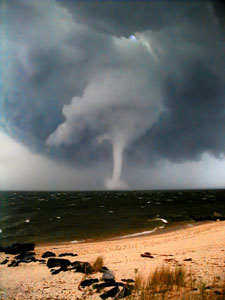
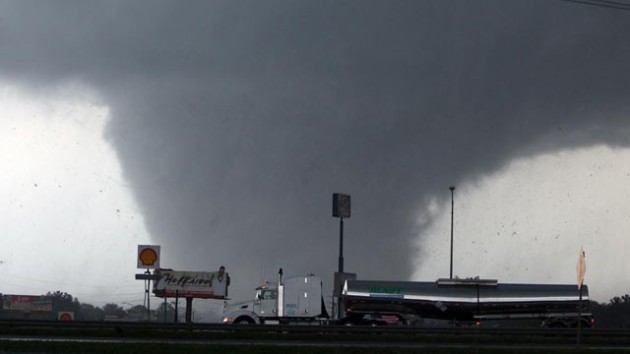
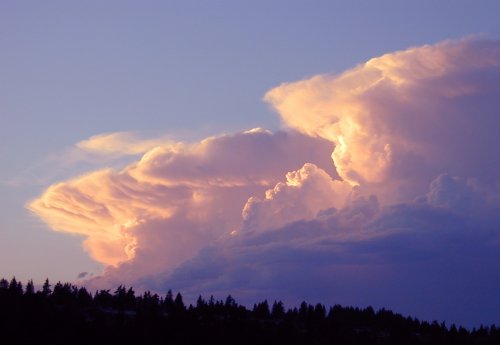
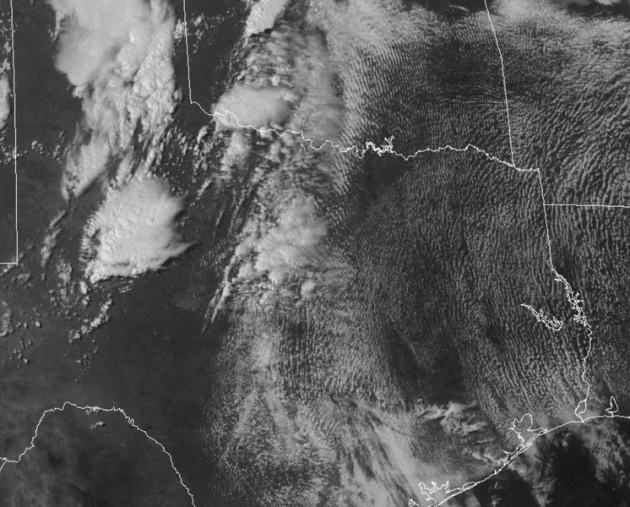

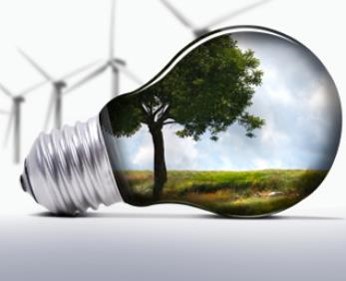


No comments:
Post a Comment